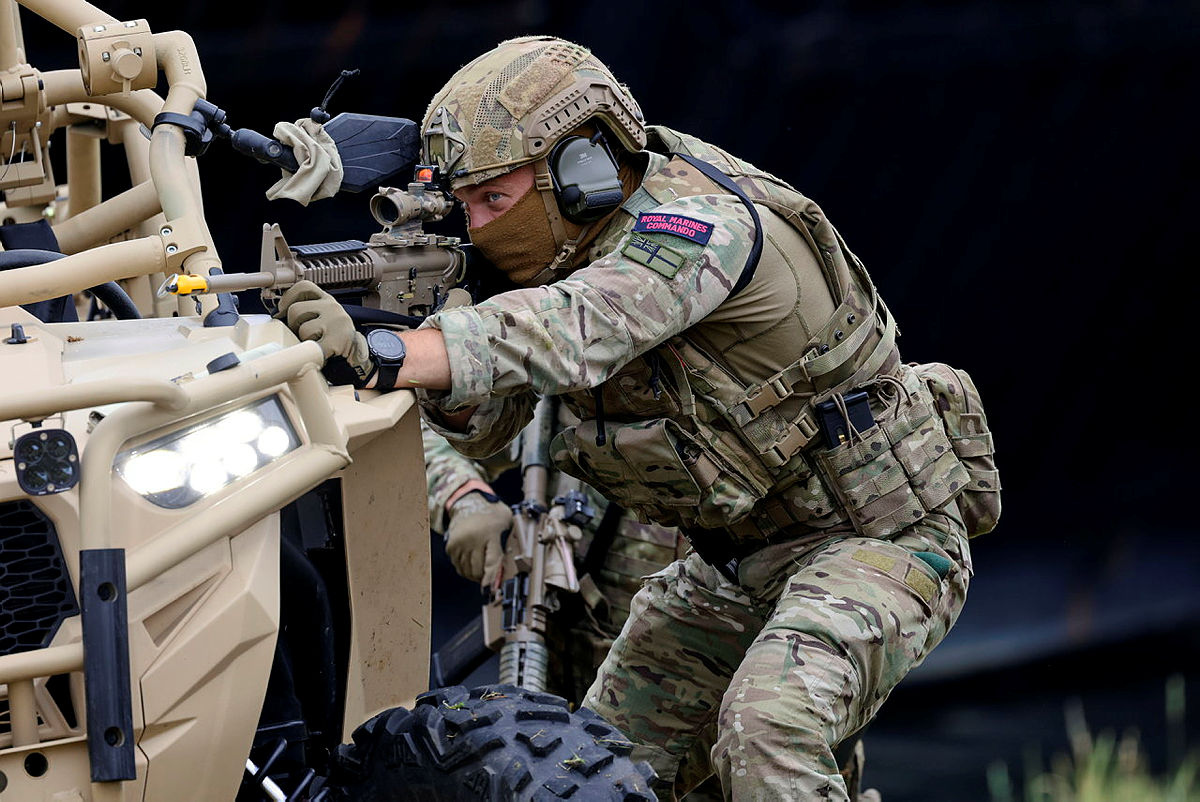Defence Command Paper 2023: Key takeaways for industry
19.07.23


19.07.23

The latest UK Defence Command Paper, released on 18 July and titled ‘Defence’s response to a more contested and volatile world’, is an important strategic document and holds significant importance for UK and international defence industry stakeholders.
A full .pdf of the paper can be found here: Defence Command Paper 2023
It serves as a roadmap and strategic guide for the future direction of UK defence policy, procurement, and capability development, and follows the publication of ‘Defence in a Competitive Age’ and the Integrated Review, both in 2021. The new paper outlines the UK government’s priorities, investment plans, and desired outcomes, which directly impact stakeholders, including defence contractors, suppliers, and technology providers.
Here are a few key takeaways from the recently released Defence Command Paper and why they are important for the defence industry:
The 2023 Command Paper comes at a critical juncture when the global security landscape is undergoing rapid and profound changes. The document reflects the UK government’s commitment to addressing emerging threats and challenges while positioning itself strategically to protect national interests and maintain a competitive edge.
One significant factor shaping the UK’s defence strategy is the changing nature of international relations. The world has become increasingly multipolar, with power dynamics shifting and geopolitical competition intensifying. Rising powers like China and resurgent actors like Russia pose complex challenges to global stability and the established international order.
The Command Paper recognises the interconnectedness of various regions and actors in shaping the security environment. It highlights the need for the UK to engage in coordinated efforts with allies, partners and regional security groupings to effectively address threats that manifest across multiple domains and regions.
The paper highlights the areas in which the UK government intends to invest and modernise its defence capabilities. It provides insights into upcoming procurement projects, equipment requirements, and technological priorities. This information allows defence industry stakeholders to align their research, development, and manufacturing efforts to meet these identified needs, opening up potential opportunities for contracts and collaboration.
According to the Command Paper, the current government has allocated an additional £24 billion to defence over four years, as well as “investing further in response to the war in
Ukraine” and committing to defence spending being 2.5% of GDP, above the NATO target of 2.0%.
The Defence Command Paper emphasises the importance of the relationship with industry in the context of national security and calls for a ‘New Alliance’ that goes beyond the traditional customer-supplier relationship.
It highlights three key lessons from the war in Ukraine, including: the need for faster acquisition programmes and platforms with upgradability; partnerships with industry to explore technological advances and share risks; and the importance of timely delivery. The paper advocates for industry to be at the heart of the defence enterprise, emphasising clearer requirements setting, resilient supply chains, faster development of capabilities, and an active approach to exports.
Chapter 3 in particular calls for a transformative relationship with industry, forging a new alliance that fosters a ‘shared sense of national endeavour’. It stresses the inclusion of small- and medium-sized enterprises (SMEs) and those outside the defence sector, promoting collaboration and innovation. The paper highlights the significance of early engagement, strategic alignment, and regular information sharing between the MoD and industry to drive innovation, capability development, and resilience within the defence sector.
Overall, the Command Paper emphasises the need for a strong and collaborative relationship with industry to maintain national security and stay ahead of adversaries.
The Command Paper emphasises the importance of managing and harnessing technology to maintain a competitive edge in global competition and future warfare. One of the key aims for defence is to be a ‘Science and Technology [S&T] Superpower’, aligning with the UK government’s goals for S&T. A total of £6.6 billion is earmarked to be invested in advanced research and development (R&D), and the defence S&T enterprise is identified as the ‘bedrock’ of the R&D system.
Five critical technologies have been identified by the National S&T Council (NSTC), which includes artificial intelligence (AI), engineering biology, future telecommunications, semiconductors, and quantum technologies. AI is highlighted as a strategic priority, with investments planned to support current operations and develop AI-enabled military capabilities. Engineering biology and future telecommunications are also identified as important areas for targeted investments. Additionally, the paper emphasises collaboration with allies and partners to develop cutting-edge capabilities and maximise the collective potential of strategic alliances such as NATO.
The Defence Command Paper underlines the UK’s ambition to promote national interests globally and expand defence exports as part of a ‘campaigning approach’ (see page 65).
Defence exports go beyond generating income for defence companies; they contribute to advancing strategic policy objectives, strengthening security alliances, promoting regional stability, and maintaining an open international order. The UK MoD recognises the advantages of defence exports, including burden-sharing with international partners, preserving production lines and skills domestically, increasing R&D investmentt, and gaining access to expertise.
The paper also highlights the UK’s aim to uphold its global reputation as a premier producer of defence capabilities and equipment. Of interest to international defence companies is the UK’s stated goal of attracting overseas companies to invest in or move parts of their businesses to the UK.
The paper recognises the importance of industrial resilience and productivity in supporting defence capabilities. It highlights the need for a closer relationship between the defence enterprise and industry to enhance productivity, optimise supply chains, and strengthen the industrial base. The Command Paper states that the strategic resilience of the UK depends on the mobilisation of military resources and the ability to scale up capabilities in times of crisis. This effort involves leveraging the expertise and capabilities of industry, fostering a resilient, reliable, and adaptable industrial base.
As part of the paper’s ‘Strategic Resilience’ chapter, it is noted that defence plays a key contribution to economic security, identifying and mitigating economic security risks, and supporting wider government efforts in shaping the G7’s economic security agenda and ensuring robust supply chains and access to critical materials.
This provides an opportunity for defence companies to contribute to the UK’s industrial resilience through innovation, efficiency improvements, and collaborative initiatives.
Looking to increase your growth in the UK defence sector? Contact us today: info@defence-media.com
Image credit: Crown Copyright


Signatories of:


Members of:



Innovation House
Molly Millars Close
Wokingham
RG41 2RX